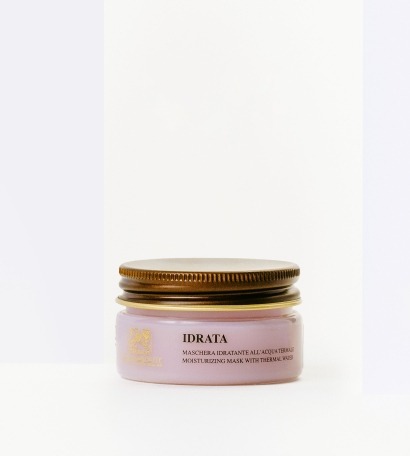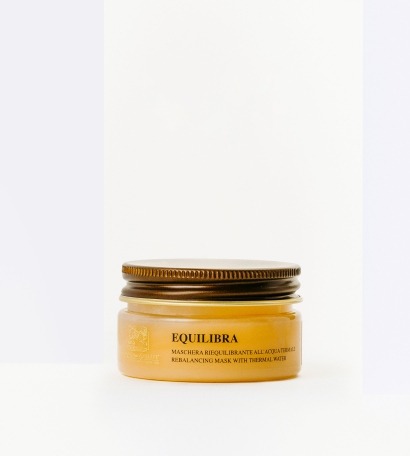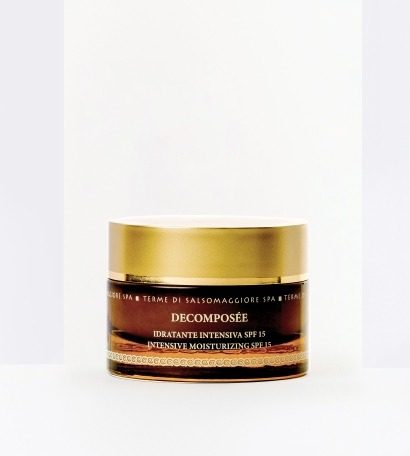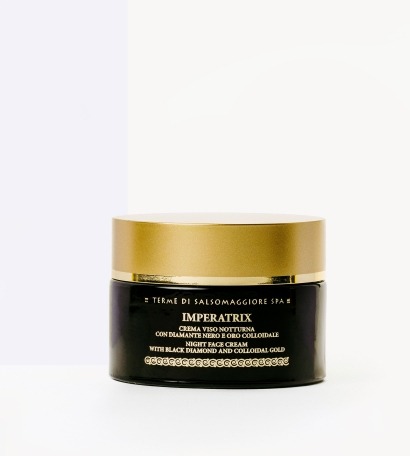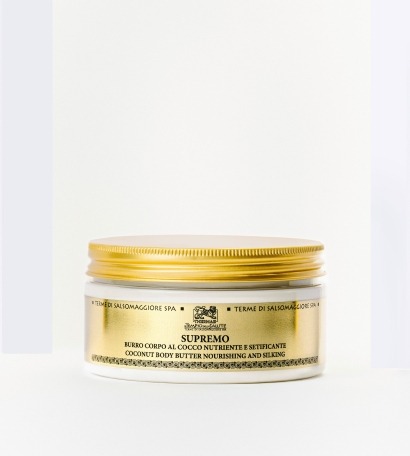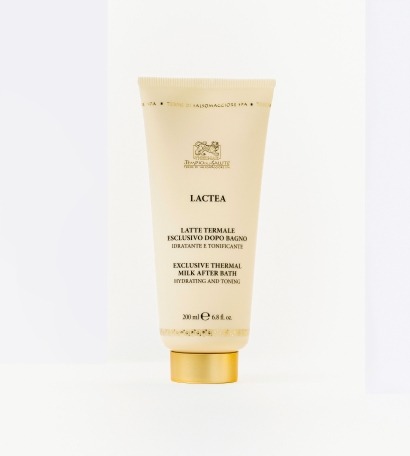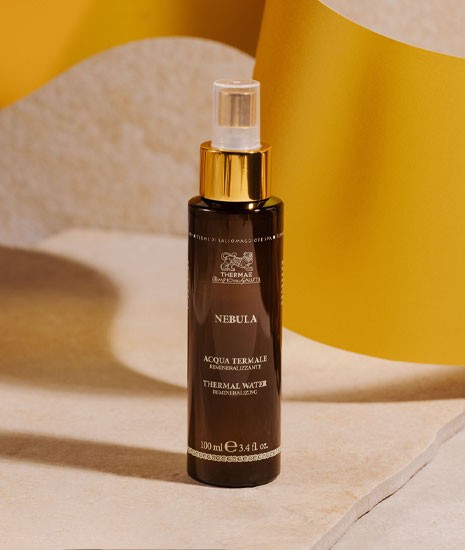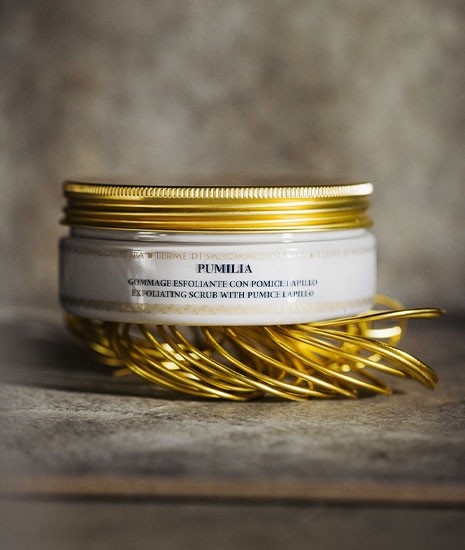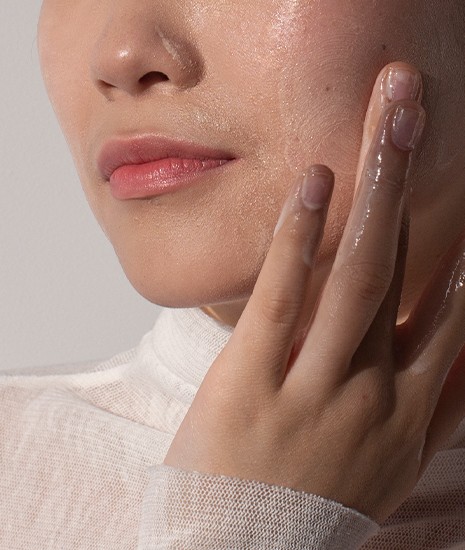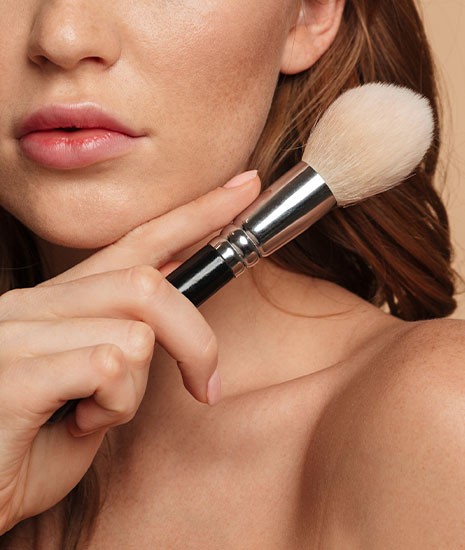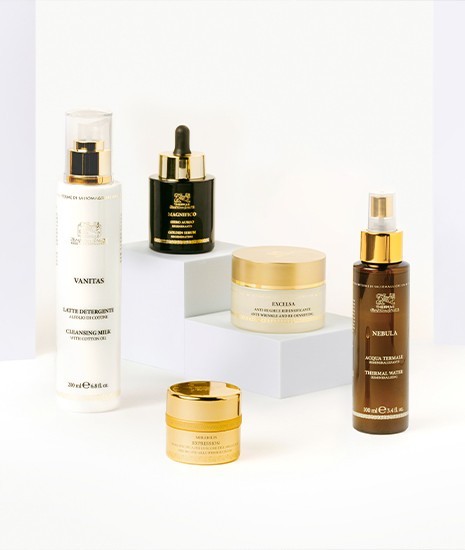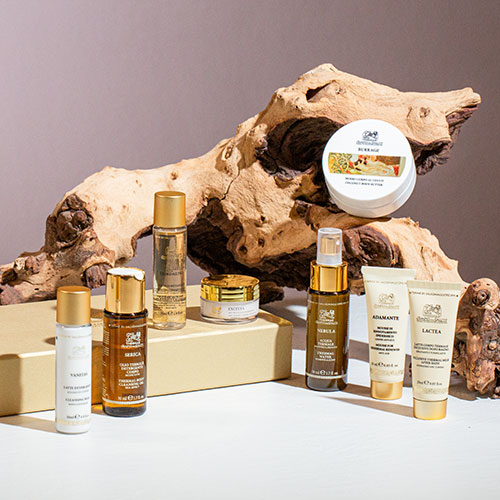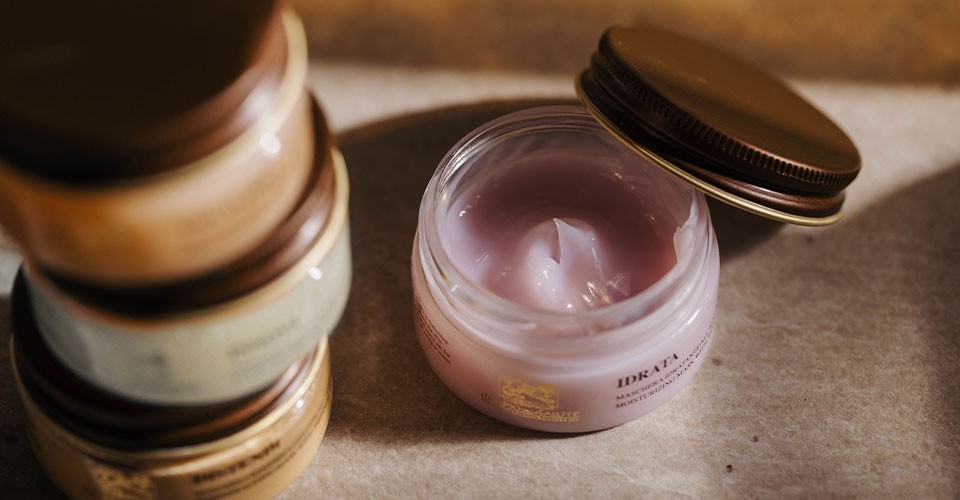
Healthier and more Hydrated Skin: a guide to using a Moisturizing Face Mask
The importance of hydration for our skin is unquestionable.
But how can we keep it effectively hydrated at all times? With a moisturizing face mask: the secret to young, soft and luminous skin!
What is a moisturizing face mask
A moisturizing face mask is a skincare product specifically created to provide particularly intense hydration. It usually comes in forms such as gel, cream or a non-woven fabric mask soaked in a moisturizing serum and contains special ingredients capable of retaining moisture and deeply nourishing the skin.
Moisturizing face masks are designed to be used as a fundamental step in daily skincare, to be applied frequently, 1 or 2 times a week, with an average application time of 15-20 minutes to allow the active ingredients to be absorbed by the skin.
They are a real boon for the skin and, similar to boosters, offer visible results after just one or a few applications. The skin immediately appears more luminous, toned and soft. Over time, the regular use of moisturizing mask treatments can help improve skin texture, prevent signs of aging and reduce the appearance of enlarged pores.
But what ingredients make these masks so effective?
The main ingredients of moisturizing face masks
Among the key ingredients of moisturizing masks usually include:
- hyaluronic acid, known for its ability to retain moisture on the skin's surface,
- glycerin, which helps keep the skin soft and moisturized,
- jojoba oil, which nourishes the skin and vitamin E, which helps protect it from environmental damage.
Face masks can be enriched with other ingredients with moisturizing and soothing properties, such as thermal water, present in all Thermae Il Tempio della Salute face masks. Indeed, our thermal cosmetics include in their innovative formulations the salsobromoiodic water of Salsomaggiore Terme, rich in minerals and with soothing, moisturizing, decongestant and healing properties. Our Thermal Water Mask Idrata is perfect for moisturizing the faces of both young and mature skins, whether for those with specific needs or those who only need it during certain times of the year. Not only does it provide deep moisture, but it also intensely nourishes the skin and promotes the recovery of tone and luminosity.
However, it's important to consider that every skin type is different, so it's crucial to tailor the choice of moisturizing masks by using ingredients that meet the specific needs of your skin: if you have sensitive skin, look for masks with gentle ingredients and fragrance-free, for dry skin, opt instead for richer and more nourishing masks.
Types of moisturizing face masks
There are various types of moisturizing face masks, each with unique characteristics and benefits based on the format, specific action and application area.
Types of face masks based on the application method
The format of a face mask plays a key role in determining its application method and effectiveness in absorbing active ingredients. Depending on their presentation, masks can be divided into:
- Non-woven fabric masks: made with sheets of fabric saturated with a moisturizing serum. They are easy to apply and adapt well to the shape of the face. They are the ideal option for quick hydration and often contain soothing ingredients for the skin as well.
- Cream or gel masks: have denser formulations that can be applied directly to the skin. They are often enriched with moisturizing ingredients like hyaluronic acid and jojoba oil. They are perfect for those looking for intensive and prolonged hydration.
Types of masks based on action
Depending on the added ingredients, moisturizing face masks can offer numerous benefits beyond hydration. For example, it's possible to find masks with actions like:
- Brightening mask: many moisturizing masks contain ingredients like vitamin C that can make the skin brighter and help reduce dark spots and even out skin tone.
- Purifying masks: often formulated with clay, which, in addition to purifying the skin, provides extra hydration. They are ideal for those with combination or oily skin as they can balance excess sebum while moisturizing dry areas.
- Antioxidant mask: antioxidants, such as vitamin E, are often present in moisturizing masks and help protect the skin from damage caused by free radicals and pollution, like our Balancing Equilibra mask which, thanks to its balancing action, restores the balance of all facial areas and normalizes them, thus protecting the skin from free radical damage.
- Remineralizing mask: some masks may contain ingredients like retinol or collagen, which stimulate collagen production and can help reduce signs of aging, such as wrinkles.
- Restructuring, elasticizing and nutritive night masks: night face masks, designed to be slowly absorbed by the skin overnight, leaving the skin soft, regenerated and visibly younger in the morning, deserve a mention too. They are particularly suitable for those with dry, reddened or mature skin who want to wake up with nourished and luminous skin. These actions can also be found in products that don't necessarily serve a solely nocturnal function, as in the case of our Ra and Idrata masks, which you can apply in the morning and/or evening.
Types of masks based on specific application areas
Each area of our face has unique needs that require targeted treatments. That's why face masks can also be distinguished by their specificity of application according to different facial areas:
- Moisturizing masks for the eye contour: there are also special moisturizing masks specifically designed for the eye contour, a delicate area that requires particular attention. These masks, which can be in cream, gel or patch form, are formulated with targeted moisturizing and nourishing ingredients to relieve dryness, improve elasticity and reduce signs of aging, such as wrinkles and dark circles.
- Moisturizing masks for the lips: another category that should be included in the range of moisturizing face products is the moisturizing lip mask. Indeed, moisturizing the lips is crucial, as they can easily become dry and chapped. Lip masks come in various forms, such as sheet masks or overnight lip balms and are formulated with ingredients like shea butter and coconut oil. They can be applied alongside the face mask or at night before going to bed.
When to use a face mask
When to use a hydrating face mask as part of a skincare routine?
The moisturizing face mask is a versatile treatment that can be incorporated into your skincare routine at various times, depending on your needs and skin type. The duration of the treatment can vary depending on the type of mask chosen and the condition of your skin.
The mask is necessarily applied after cleansing the skin and is particularly effective in the case of:
- Dehydrated or dry skin: you can apply a moisturizing mask once or twice a week to restore hydration and softness.
- After exposure to the sun or extreme weather conditions: at the end of summer, after extensive exposure to the sun or in conditions of intense cold, your face may need a soothing and moisturizing treatment. In these cases, a moisturizing mask can be a beneficial choice.
- As part of your evening routine: many people prefer to use a moisturizing mask as part of their evening skincare routine. Apply it after cleansing and before night cream, at least once or twice a week, to maximize regenerative benefits during sleep.
How to use a Face Mask
To maximize the benefits of a face mask, it's crucial to incorporate it correctly into your skincare routine.
A moisturizing face mask should be applied after cleansing and exfoliating, which prepare the skin by removing impurities and dead skin cells. Then, you can apply a toner, which helps to rebalance the skin's pH, and a serum, to address specific skin concerns such as hydration, brightening, or anti-aging.
At this point, you can use the moisturizing face mask:
- Apply it evenly across the face, avoiding the delicate area around the eyes and lips. Follow the specific instructions on the product for the duration, which typically varies between 10 and 20 minutes.
- After the recommended time, rinse your face with lukewarm water. It's important not to leave the mask on the face longer than necessary, as it could cause dryness or irritation.
After removing the mask, it's important to continue with the rest of your skincare, possibly applying another layer of serum, followed by a moisturizing cream to help seal in moisture and protect the skin barrier. Remember to apply the mask with a frequency suitable for your skin type and according to the product's instructions, genera
Red face after Mask: what to do?
A red face after using a moisturizing face mask can be a common reaction, especially if you have sensitive skin or if the mask contains active ingredients like alpha-hydroxy acids or retinol. If you notice redness, here are some steps you can follow to alleviate irritation:
- Immediately remove the mask: as soon as you notice any redness or burning sensation, remove the mask with cool water to minimize further irritation.
- Apply a cold compress: using a soft cloth soaked in cool water or a chilled gel can help soothe the skin and reduce redness.
- Moisturize: after removing the mask and calming the skin, apply a light, soothing moisturizer. Look for products containing aloe vera, chamomile, or cucumber extracts, which are known for their calming properties. If the redness persists or if other symptoms such as itching or swelling occur, it is advisable to consult a doctor.
Furthermore, to prevent the problem from recurring in the future, review the ingredients of the mask you used. Avoid those that can cause irritation, especially if you have sensitive skin, or before using a new mask on your entire face, test the product on a small area of skin, such as the inside of your wrist or behind the ear, to see how it reacts.lly once or twice a week.
Differences between moisturizing face masks and moisturizing creams
Moisturizing face masks and moisturizing creams are two categories of skincare products that have similar purposes but are distinguished by some key features:
- Duration of application: masks can be left on for a limited time and then removed, except for exceptions, while creams are massaged into the skin until fully absorbed.
- Ingredient concentration: masks often contain a higher concentration of active moisturizing ingredients compared to daily moisturizing creams. This makes them ideal for providing intensive and rapid treatment.
- Consistency: masks can come in different forms, such as gel, cream or soaked fabric, while creams have a creamy consistency.
- Frequency of use: creams are designed to be used daily and constitute an essential step in the skincare routine, while masks are used less frequently, as part of an intensive skin treatment.
- Results: masks can offer immediate visible results, on the other hand, daily moisturizing creams provide continuous hydration and help maintain the skin in an optimal state over time.
Are there also moisturizing masks for the body?
There are moisturizing masks specifically developed for the body, designed to provide hydration and nourishment to the skin tissue of various body areas, similarly to how face masks work for facial skin. These body masks are an excellent choice for keeping the body's skin soft, elastic and adequately hydrated, especially in areas prone to dryness, such as legs, arms and neck.
Here are some types of moisturizing masks for the body:
- Cream or lotion body masks: have a consistency similar to creams or lotions and are applied directly to the body's skin. They often contain moisturizing ingredients like shea butter, coconut oil or hyaluronic acid.
- Gel body masks: offer deep hydration and can be particularly refreshing when spread on the skin.
- Exfoliating body masks: some body masks not only moisturize but also exfoliate the skin, removing dead cells and improving skin texture.
- Overnight body masks: treatments intended to be worn overnight, gradually absorbed by the skin to provide deep and lasting hydration.
As with any skincare product, it's important to choose a mask suitable for your skin type and specific needs. If you're looking for effective treatments, Thermea face masks can also be a great option for the body, especially for hydrating and brightening often neglected areas like elbows and knees.
Hydration through a moisturizing face mask: an effective treatment for immediately softer and more glowing skin
Moisturizing masks are a valuable ally in your skincare routine. Because keeping the skin hydrated is essential for youthful and healthy skin, but don't forget that you can also use the right moisturizing creams, both for the face and body, during your daily skincare routines. Experiment with different options and find the ones that work best for you to enjoy the benefits of radiant, soft and healthy skin.




